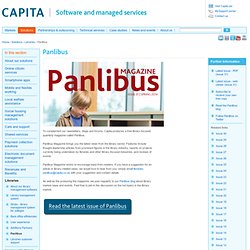

E-learning quality assurance standards, organizations and research. I am surprised how often academic colleagues argue that there are no quality standards for e-learning. Well, hello, I’m sorry, but there are and some of them are damned good. However, I was surprised to find while doing some research for a client that there is no single source where one can go to compare different quality standards for e-learning. So I’m starting a list here, and would appreciate it if readers could direct me to ones that I may have missed. (For more detailed information on some of these, see comments below). Canada Barker, K. (2002) Canadian Recommended E-learning Guidelines (CanREGs) Vancouver BC: FuturEd/CACE (also available in French) Barker, K. (2001) Creating quality guidelines for online education and training: consultation workbook Vancouver BC: Canadian Association for Community Education. VLE evolving – DLE, ILE, VILE, IDLE, FIDDLE and PIDDLE.
The concept of the VLE is evolving or being replaced.

It makes sense to some to rename the VLE to demonstrate how the VLE is evolving and how it is been used. The Devolved Learning Environment DLE is a way of taking a VLE and devolving it to the learners who then have more control over the environment, how they use the environment and what they use the environment for. Devolving the learning environment empowers the learner and allows them to take more control over their learning within an institutionally provided learning environment. This is of course different to a PLE, a Personal Learning Environment would not be provided by the institution, whereas the DLE would be. In a VLE such as Moodle devolving the LE to a DLE can be done easily with roles.
The Virtualised Individualised Learning Environment VILE is a variation of the ILE. So is your VLE evolving into a PIDDLE? Freedom at Home Team. Lou Mcgill's answer to E-learning: What are the best e-learning tools in medicine. E-Learning Focus - VLEs at the heart of curriculum innovation. How to be an eLearning Expert (module 2) - How to be Controversial - The Followers of the Apocalypse (dkernohan's posterous) Free to Learn Guide. ITALICS - Volume 5 Issue 4. eLit 2006 was held on the 28th – 30th June 2006 at Loughborough University .

The conference brought together academics, teachers, IT trainers & support staff, librarians and learning technologists from around the world to share experience, good practice and to discuss issues relating to the embedding of e-literacy skills into the curriculum and society as a whole. This is a special conference issue of ITALICS, jointly published with the Journal of e-Literacy (JelIT- and includes a selection of papers submitted to the conference and expanded for this publication. e-Literacy can be described as the “the awareness, skills, understandings and reflective–evaluative approaches that are necessary for an individual to operate comfortably in information–rich and IT–supported environments.”
(Martin 2003). Many of the papers included in this issue consider aspects of formal education at different levels, in different countries throughout the world. Download the whole editorial in PDF Document. Whose university, and why? pt1. - dkernohan's posterous. Women lose most from digital exclusion. 21 September 2010 Information Dividend Report shows socially excluded women benefit most from IT access. Things I Learned This Month – September 2010. How to be an e-learning expert. It's never been easier to reinvent yourself as an e-learning expert.

Just by following the few simple steps below you too could be an expert within weeks. The only proviso I would give is that in order to achieve this you must be SHAMELESS. 1. Don't worry if you have no experience of teaching - we're all learners after all. 2. 3. 4. 5. 6. 7. 8. 9. 10. 11. 12. 13. 14. 15 I think this one may be the most important - don't be afraid to state the bleeding obvious, because if you don't do it someone else will, and they'll steal your kudos. Publications - nsf08204 Fostering Learning in the Networked Worl. Greplin is a Personal Search Engine for Your Cloud Data. Panlibus » Blog Archive » OER loves academic libraries. To complement our newsletters, blogs and forums, Capita produces a free library-focused quarterly magazine called Panlibus.

Panlibus Magazine brings you the latest news from the library sector. Features include thought-leadership articles from prominent figures in the library industry, reports on projects currently being undertaken by libraries and other library-focused industries, and reviews of events. JISC : Supporting education and research. Alamo A La Mode. Alamo A La Mode March 14th, 2011 at 05:03 I always liked twitter as a social network, mostly because unlike facebook or myspace, it seemed ad-free, and never seemed to want to eat all of your data like an over stimulated census taker.

Being ad free – and apparently sans business model – it also felt a little bit like a public service. eLearning Technology. This month on the Learning Circuits Blog - I asked some very leading questions If we have responsibility for informal learning, social learning, eLearning 2.0, long tail learning, etc. then ...Don't we have to conclude that learning professionals must be literate in these things?

If so, then what should learning professionals do to become literate? Should workplace learning professionals be leading the charge around these new work literacies?